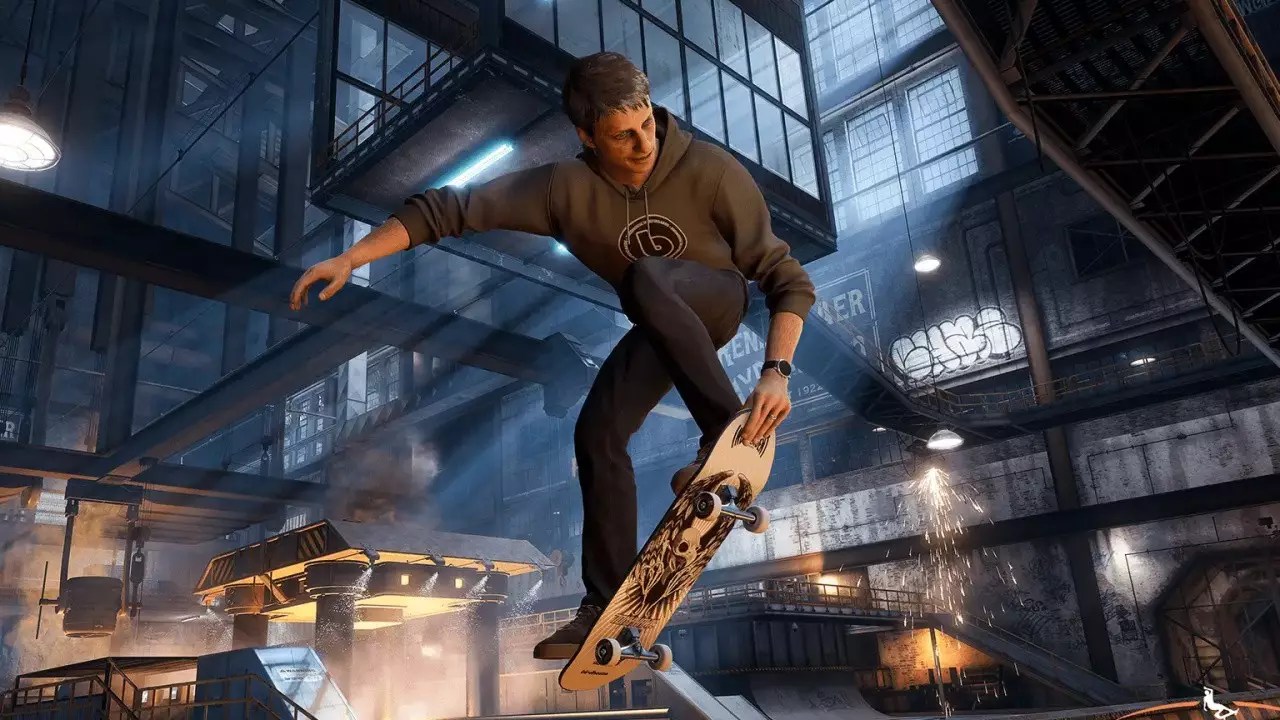The return of Tony Hawk’s Pro Skater 3+4 marks more than just a remake; it symbolizes a commitment to preserving a beloved era of gaming while attempting to innovate within the bounds of nostalgia. This new release is not merely a remastered version; it’s a deliberate effort to breathe new life into two classic titles that hold a special place in the hearts of skateboarding fans and gamers alike. The decision to revisit these specific entries indicates a recognition of their enduring popularity and the timelessness of their core gameplay mechanics.
What makes this revival particularly compelling is the way it balances reverence for the originals with subtle attempts at modernizing the experience. Fans can now skate across both familiar parks like The Foundry and Alcatraz, as well as wilder, imaginative settings such as a pinball machine-inspired map. This mixture of old and new environments serves as a testament to how the franchise remains flexible enough to adapt without diluting its core identity. Yet, beneath this surface of revitalization lies a tension—a push to evolve while respecting what made the original games so beloved.
Criticism Illuminates the Inherent Tensions in Recreating a Classic
While critics generally acknowledge the solid foundation of the game, there is an unmistakable undercurrent of disappointment rooted in alterations to the gameplay structure, particularly in the Career mode and the treatment of the fourth installment’s levels. Reviews reveal a disconnect between the desire for a pure, nostalgic experience and the practicalities of modern game development.
For example, GameSpot awarded the game a commendable 8/10 but expressed regret over some design choices in THPS4, which don’t smoothly integrate into the overall package. The critique hints at a deeper issue: the temptation to modernize must be carefully balanced against the risk of alienating long-time fans. The decision to alter soundtracks—removing a large percentage of the original tracks—embodies this dilemma. Music is a core component of the original experience, shaping atmosphere and nostalgia, and stripping it back risks erasing the emotional resonance that helped define the series.
Moreover, the retention of gameplay mechanics like trick fluidity and the intuitive controls underscores that the fundamental skating experience remains strong, even if some adjustments feel unnecessary or jarring. The challenge lies in maintaining the authentic feel that made players fall in love with the series, while also making minor changes that may cause friction with seasoned fans. Critics like IGN and GamingTrend recognize the game’s successes but do not shy away from emphasizing areas where the remake falls short.
Unpacking the Cultural Significance and Future Potential
Beyond reviews and gameplay mechanics, the re-release of Tony Hawk’s Pro Skater 3+4 signifies a broader cultural phenomenon. These titles are not simply games; they represent an entire skateboarding ethos that captured the youth zeitgeist during the early 2000s. Reintroducing these games on modern platforms allows a new generation to experience this underground subculture, while also giving seasoned players a chance to relive their youth with improved graphics and performance.
The series’ ability to remain relevant hinges on its capacity to evolve without losing its identity. While critics are divided over the specifics—some celebrating the refinements, others lamenting the changes—the overall sentiment remains optimistic: the core gameplay still resonates. The game’s success on multiple platforms, including the Nintendo Switch, signals a promising future for the franchise’s longevity. It highlights a recognition that the timeless skating mechanics will always find an audience, regardless of how many years pass.
As the skateboarding culture itself continues to grow and intersect with mainstream entertainment, Tony Hawk’s legacy proves resilient because it encapsulates the freedom, rebellion, and skill that define the sport. The ongoing efforts to refine and reintroduce these classics are not just about nostalgia—they are about reinforcing the cultural significance of skateboarding within the gaming world and beyond. The game is more than a simple remake; it’s a statement that the thrill of the grind, the challenge of mastering tricks, and the spirit of effortless cool remain as vital as ever.


Leave a Reply